College of Engineering Dean Michelle Scherer wants more undergraduate engineering students involved in research. Her new Research Experience for Undergraduate Students program provides the funding to make that possible.
When Dean Michelle Scherer joined Michigan Technological University's College of Engineering in July 2024, she arrived with a mission statement: We need every engineer. Her words spurred a new initiative that is delivering on that mission by preparing undergraduate students for careers in engineering research and development.
The College of Engineering's Research Experience for Undergraduate Students (REU) pairs students of all academic years, even their first, with renowned Michigan Tech faculty members working on projects spanning from underwater communication by autonomous vehicles to transformative approaches in recycling and beyond.
Modeled after the National Science Foundation's program, the College launched their initiative in spring 2025, giving faculty members the opportunity to hire undergraduate students as part of their research teams. The REU program is designed to be mutually beneficial; faculty members connect with creative, talented students who are eager to learn, and students gain hands-on experiences that supplement their world-class education.
"Michigan Tech is all about the student experience," said Scherer. "By joining a research group, students get a chance to see how what they are learning in the classroom is being applied to find real solutions to real problems."
"For Tech, as a newly classified R1 university, I think creating these kinds of long-term research experiences for undergraduates is an important way to make sure the benefits of being an R1 university are integrated into the Tech student experience."
Though the program is only in its first semester, excitement has been high. When applications opened in fall 2024, over 200 students applied for research positions to work with 34 faculty members from all nine of Michigan Tech's engineering departments. Applications for fall 2025 will open soon, and the College of Engineering is expecting continued high involvement.
For three faculty-student pairs, the REU program has been a valuable experience for everyone involved.
Simulated Storms, Real Mentorship
Effective research mentorship is a two-way street. That's how civil, environmental, and geospatial engineering Assistant Professor Yousef Darestani sees it. Having first-year civil engineering student Evelyn Adams on his research team means he's learning new things, too.
About the Researcher
"Undergrad students often approach research problems with curiosity and creativity," said Darestani. "Their questions and feedback helps me in developing my skills as a research mentor and brings ideas on how I should frame my research to make it more interesting for the general audience."
Darestani's research group develops computational models to estimate the reliability and resiliency of infrastructure systems subjected to weather-related hazards, like hurricanes and other coastal storms. Their storm simulations integrate with physical models in order to estimate the probability of failure and to determine recovery time for potentially damaged infrastructure, such as transportation and power systems.
"These models provide us with opportunities to perform optimizations to devise cost-effective solutions to enhance the long-term reliability and resiliency of the infrastructure system," said Darestani.
For Adams, the analysis and recreation of the storms using computer simulations has turned out to be quite intriguing. "With just a few pieces of computer code I can account for factors such as gusts and wind directionality. Additionally, after utilizing this simulation, the application is very pertinent to the real world," she said.
Being able to contribute to real-world solutions is why Adams applied for the REU program in the first place.
"I chose to participate in the Research Experience for Undergraduate Students because it presents a valuable opportunity for someone who is interested in research but not yet at the graduate level," said Adams. "It is also great to build a solid foundation for my future academic and professional endeavors."
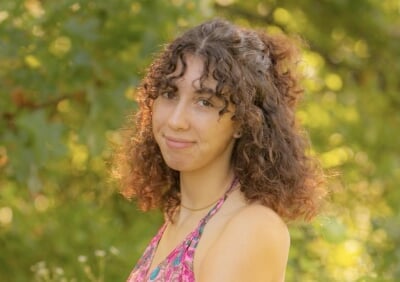
Adams intends to go on to graduate work, and Darestani noted that she is already learning advanced reliability concepts that are typically taught to graduate students.
"Evelyn is smart, eager to learn, and very motivated," said Darestani. "She has already achieved tremendous success by writing computer codes that can estimate wind loads on power infrastructure systems."
Being a part of the REU program and working closely with a Michigan Tech professor has given Adams further insight into her future career.
"Professor Darestani has already taught me many valuable lessons, in this specific field of research and in general academia," she said. "All of this is extremely applicable to pursuing my life goals."
Microplastics and their Macro Impacts
Daisy Schwartz, first-year chemical engineering student, knew she wanted to work with her faculty mentor since she first arrived on campus. Schwartz met Adrienne Minerick last fall at the Department of Chemical Engineering mixer.
About the Researcher
"I was intrigued by the combination of chemistry and biology that Professor Minerick's research represented," said Schwartz. "When I saw the listing for this position, I just had to apply."
Thanks to the REU program, Schwartz was able to find a place on Minerick's team. Minerick, a distinguished professor of chemical engineering and affiliated professor of biomedical engineering, is researching how micro/nanoplastics (MNPs) are impacting human health.
"Micro/nanoplastics have become so pervasive in our world that each one of us inhales, ingests, and absorbs them daily," said Minerick. "There is a growing body of evidence that these MNPs are collecting in tissues, organs, and blood in our bodies. It is unknown what physiological impacts these are having on our health."
Minerick classified plastics as "a new kind of pollutant." The primary concern is the prevalence of MNPs in our everyday lives, from cosmetics and hygiene products to synthetic clothing and water bottles.
"The social acceptance of MNPs is complex," said Minerick. "For example, plastics are employed as sterile packaging of food and the unstated assumption is that plastic is completely inert and harmless to our bodies."
With the rest of the research team, Minerick and Schwartz are investigating MNPs' potential harm by exploring how they interact with our gut microbiome and digestive system, and how the MNPs we ingest are making their way into other vital organs.
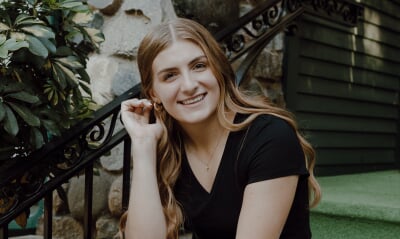
For Schwartz, she's grateful for the opportunity to put what she's learned in the classroom into practice. "This research opportunity also allows me to get experience using different equipment, like a biosafety cabinet, autoclave, incubator, etc., as well as different techniques that you wouldn't normally see in a university lab setting," she said.
Being a part of Minerick's research team means that Schwartz is part of a community of researchers.
"I really like our weekly meetings where people from the different projects under Professor Minerick share what they are learning or working on — which I find really interesting, even if some of it goes over my head," said Schwartz. "It makes me feel more connected to the rest of the team and it is just cool to learn about some of the many different projects going on at Tech."
Minerick noted that Schwartz's contributions to the team are just as important.
"She is excited to be learning new things and approaches reading articles about micro/nanoplastics and contamination reports in the human body with as much gusto as learning in the lab," said Minerick. "She is willing to admit when she doesn't know or understand something and is willing to try new things. Her enjoyment of learning has been fun for her graduate student mentor and everyone in our lab."
Collaborative Research on Integrated Infrastructure
Anna Stuhlmacher was heading in a new research direction when she applied for the REU program. The assistant professor of electrical and computer engineering researches energy resource optimization and control in power systems to provide flexibility, an important aspect as energy systems become more sustainable.
About the Researcher
Her current project examines how critical infrastructure systems like electric power grids and wastewater treatment can work together more effectively.
"We're investigating how wastewater treatment plants can adjust their operations to support the power grid while still meeting their primary responsibility of safely and effectively treating wastewater," said Stuhlmacher. "Understanding and modeling these interactions helps us improve how we operate infrastructure today and plan for more reliable, coordinated systems in the future."
Junior electrical engineering student Nathan Price has been part of Stuhlmacher's team as she embarks on this new research venture.
"Having an undergraduate student involved early on has been helpful," said Stuhlmacher. "He jumped into the project right away — reviewing research papers, asking thoughtful questions, and drawing connections between the technical concepts and the broader goal of using wastewater treatment plants as flexible assets for the power grid."
Price said he has been looking for research opportunities like this since he started at Tech, and has already learned "so much" from Stuhlmacher.
"Before this, I had no idea what aspects of the electric grid were being researched," said Price. "I find it interesting how 'the grid' is expanding to encompass energy from processes other than power generation, like EV (electric vehicle) batteries, or in our project, the energy used in wastewater treatment."
Price's experience on this project has given him a new understanding of how important electrical engineering is to the real world.
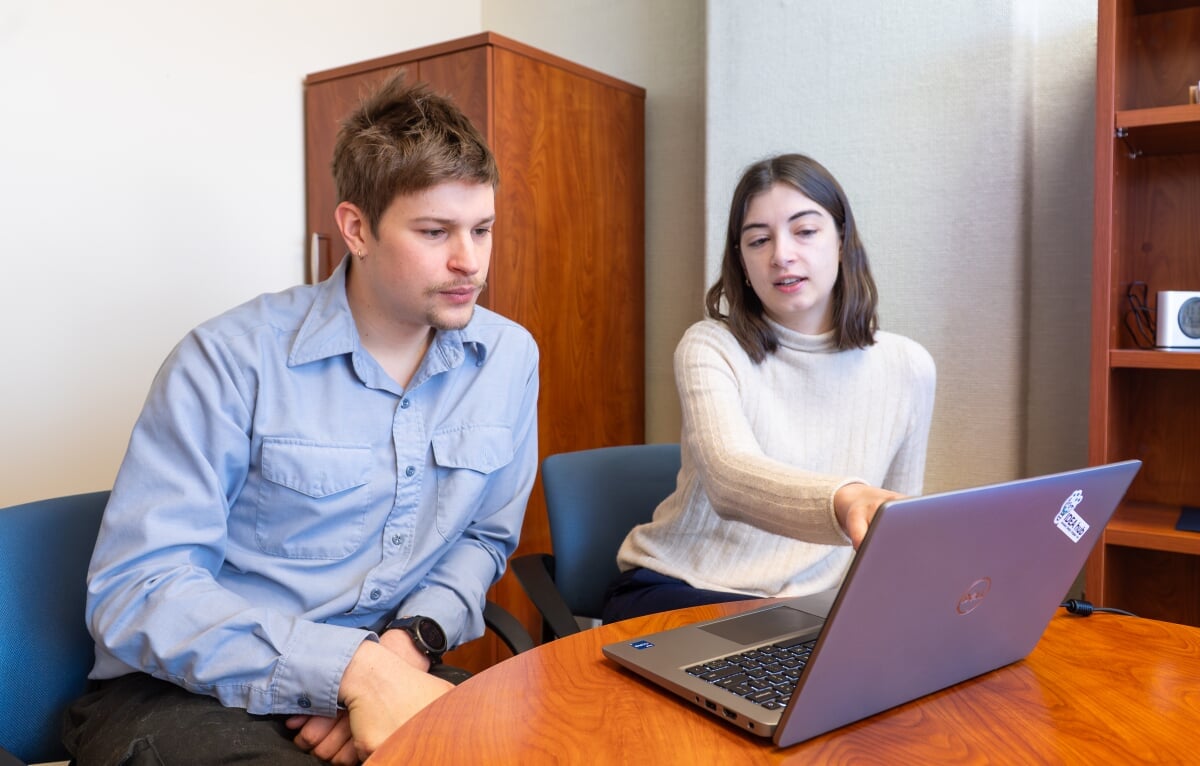
"Research experiences like this one can help undergrad students get a clearer picture of what research looks like. Speaking from personal experience, I think this is especially useful for students who are considering graduate school."
"As I see it, the grid is the world's largest machine, and it's undergoing a fundamental reconceptualization due to the nature of renewable energy generation," said Price — who, as a research assistant, gets to be a part of that reconceptualization. "I'm very grateful to gain insight into the process and environment, especially as I am also particularly interested in the electric grid."
Stuhlmacher sees the REU program as not only a benefit for her research team, but as great exposure for students like Price, Schwartz and Adams.
Michigan Technological University is an R1 public research university founded in 1885 in Houghton, and is home to nearly 7,500 students from more than 60 countries around the world. Consistently ranked among the best universities in the country for return on investment, Michigan's flagship technological university offers more than 120 undergraduate and graduate degree programs in science and technology, engineering, computing, forestry, business, health professions, humanities, mathematics, social sciences, and the arts. The rural campus is situated just miles from Lake Superior in Michigan's Upper Peninsula, offering year-round opportunities for outdoor adventure.

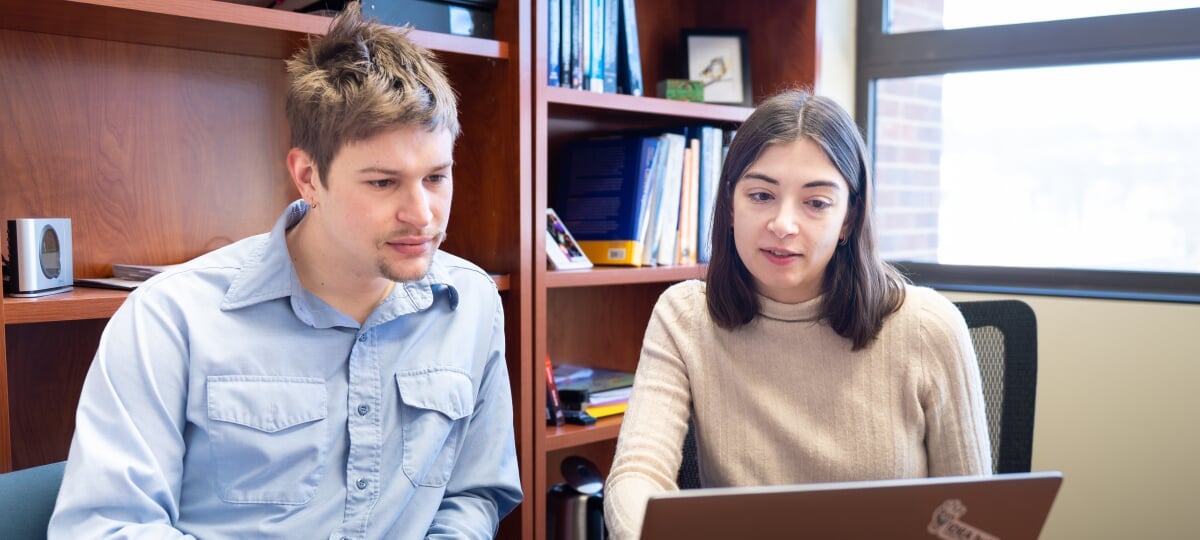

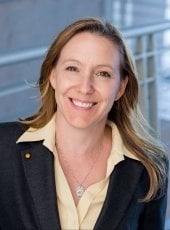
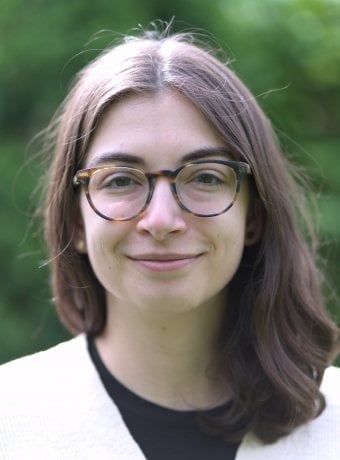



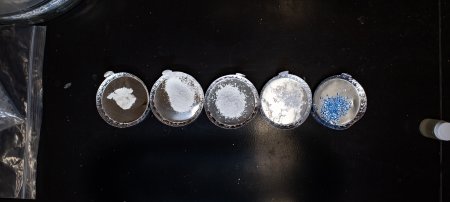
Comments